Global Giants | Exploring Prominent International Organizations
In today’s interconnected world, international organizations play a pivotal role in shaping global affairs, addressing pressing issues, and fostering cooperation among nations. These organizations serve as platforms for collaboration, advocacy, and problem-solving, uniting countries with diverse backgrounds and interests in pursuit of common goals. From promoting peace and human rights to addressing economic challenges and environmental sustainability, they wield influence and impact on a global scale.
Join us on an enlightening journey as we delve into the world of prominent international organizations. In this blog series, we will unravel the missions, functions, and achievements of some of the most influential global entities that shape our collective destiny.
United Nations (UN)
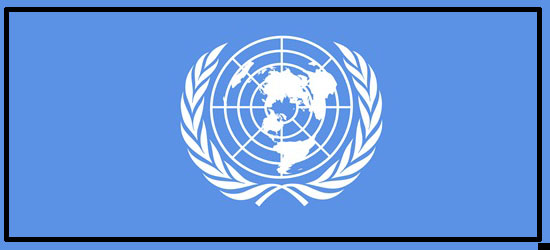
The United Nations (UN) is an intergovernmental organization established on October 24, 1945, with the primary objective of maintaining international peace and security. It serves as a platform for global cooperation and dialogue, addressing a wide range of issues such as human rights, economic development, environmental sustainability, and social progress. The UN is headquartered in New York City, United States, and has a membership of 193 member states.
The establishment of the United Nations came in the aftermath of World War II, aiming to prevent such devastating conflicts in the future. Its formation was based on the principles of sovereign equality, peaceful settlement of disputes, and respect for human rights. The UN Charter, the organization’s foundational document, outlines its purpose, principles, and structure, and serves as a guide for member states’ actions.
The UN carries out its work through various specialized agencies, programs, and bodies. The General Assembly, composed of all member states, is the main deliberative and policymaking body, where nations discuss and make decisions on global issues. The Security Council, with five permanent members and ten rotating members, is responsible for maintaining international peace and security, authorizing peacekeeping missions, and imposing sanctions when necessary.
Beyond peace and security, the United Nations plays a crucial role in promoting sustainable development and addressing global challenges. The Sustainable Development Goals (SDGs), adopted in 2015, provide a comprehensive framework for eradicating poverty, achieving gender equality, ensuring access to education and healthcare, combating climate change, and promoting inclusive and sustainable economic growth.
Moreover, the United Nations serves as a forum for international cooperation, fostering dialogue among nations and facilitating diplomatic negotiations. It provides a platform for resolving conflicts peacefully, mediating disputes, and promoting dialogue among nations.
While the UN faces its share of challenges and limitations, it remains an indispensable global organization, playing a vital role in maintaining peace, promoting human rights, and addressing global issues. Through its efforts, the United Nations strives to create a more just, peaceful, and sustainable world for all.
Check also: World General Knowledge MCQs
The Organization of Islamic Cooperation (OIC)
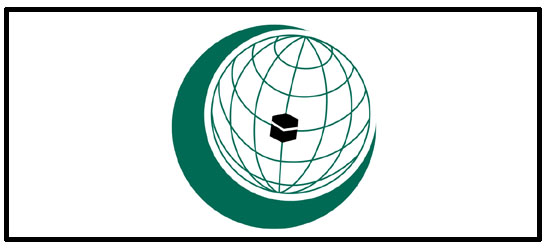
The Organization of Islamic Cooperation (OIC) is an international organization consisting of 57 member states, making it the second-largest intergovernmental organization after the United Nations. The OIC aims to promote solidarity and cooperation among member countries, uphold the interests of the Muslim world, and work towards the well-being, dignity, and progress of Muslims globally.
The organization was established in 1969 in response to growing concerns about the challenges faced by Muslim nations and the need for collective action. The OIC serves as a platform for member states to discuss and address political, economic, social, and cultural issues of common interest. It also works towards safeguarding the rights and interests of Muslims around the world, particularly in situations of conflict, occupation, or discrimination.
The OIC’s primary goals include promoting peace, stability, and harmony among member states, fostering intra-Islamic cooperation, supporting the resolution of conflicts through peaceful means, and advocating for the rights of Palestinians and the status of Jerusalem. The organization also works to combat Islamophobia, promote dialogue among civilizations, and enhance cooperation in areas such as education, science, technology, and economic development.
The OIC operates through various subsidiary bodies, including the Islamic Summit, the Council of Foreign Ministers, and specialized committees and agencies. These bodies facilitate dialogue, coordination, and collaboration among member states to address common challenges and promote joint initiatives.
One of the significant achievements of the OIC is the establishment of the Islamic Development Bank (IDB), a multilateral development financing institution that provides financial assistance and support for development projects in member countries. The IDB plays a crucial role in promoting economic growth, poverty alleviation, and sustainable development within the Muslim world.
The OIC also actively engages in humanitarian and relief efforts, providing assistance to member countries in times of natural disasters, conflicts, and humanitarian crises. It coordinates relief initiatives, mobilizes resources, and facilitates cooperation among member states to ensure timely and effective responses to humanitarian emergencies.
In summary, the Organization of Islamic Cooperation (OIC) is an international organization that brings together 57 member states to foster cooperation, unity, and progress within the Muslim world. By promoting dialogue, addressing common challenges, and advocating for the rights and interests of Muslims, the OIC strives to enhance peace, stability, and prosperity among member countries and contribute to the well-being of the broader Muslim community.
Read also: 10 Surprising Facts About the Human Brain You Didn’t Know
World Health Organization (WHO)
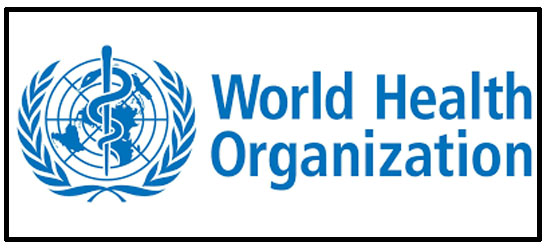
The World Health Organization (WHO) is a specialized agency of the United Nations responsible for international public health. Established on April 7, 1948, with its headquarters in Geneva, Switzerland, the WHO works towards achieving the highest possible level of health for all people across the globe.
The primary objective of the WHO is to promote and coordinate international efforts to prevent, control, and respond to health emergencies, diseases, and other health-related challenges. It serves as a global authority on public health, providing leadership, technical expertise, and guidance to its member states.
The WHO operates through a network of offices and experts around the world, collaborating with governments, organizations, and individuals to tackle a wide range of health issues. It provides support to countries in developing effective health policies, strategies, and programs. Additionally, it conducts research, sets norms and standards, and monitors health trends and indicators.
One of the core functions of the WHO is to respond to outbreaks and emergencies. The organization plays a crucial role in identifying, assessing, and coordinating global responses to health crises, including infectious diseases, natural disasters, and humanitarian emergencies. It supports countries in strengthening their capacity to prevent, detect, and respond to health threats, ultimately safeguarding global public health security.
Furthermore, the WHO focuses on addressing major health challenges that affect populations worldwide. It leads efforts to combat diseases such as HIV/AIDS, malaria, tuberculosis, and non-communicable diseases like cancer and diabetes. The organization promotes immunization, maternal and child health, and works towards achieving universal health coverage to ensure equitable access to quality healthcare services.
The WHO also plays a vital role in health policy development and advocacy. It provides evidence-based guidance and recommendations on various health issues, influencing global health policies and shaping the international health agenda. Moreover, it fosters collaboration and partnerships with governments, civil society organizations, and other stakeholders to address health inequalities and promote social determinants of health.
In summary, the World Health Organization serves as the leading global authority on public health, working tirelessly to improve the health and well-being of people worldwide. With its focus on prevention, preparedness, and response, the WHO plays a critical role in safeguarding global health and promoting the right to health for all.
International Monetary Fund (IMF)
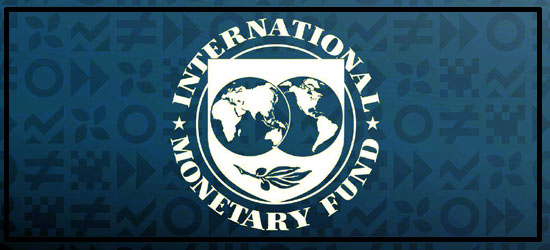
The International Monetary Fund (IMF) is an international financial institution established in 1944 with the goal of fostering global monetary cooperation, ensuring financial stability, and promoting economic growth and development. The IMF serves as a forum for member countries to address economic challenges, provide financial assistance, and offer policy advice to promote sustainable and balanced economic systems.
Headquartered in Washington, D.C., the IMF currently has 190 member countries. It functions as a cooperative organization, pooling resources from its members and utilizing them to provide financial assistance to countries facing balance of payments difficulties or experiencing economic crises. The IMF’s lending programs aim to support countries in stabilizing their economies, implementing structural reforms, and achieving sustainable growth.
In addition to providing financial assistance, the IMF plays a vital role in global economic surveillance. It conducts regular assessments of the global economy, monitors key economic indicators, and provides analysis and forecasts to member countries. Through its surveillance activities, the IMF helps identify risks and vulnerabilities in the global economy, advises on policy measures to address these challenges, and promotes international cooperation to achieve economic stability and growth.
The IMF also serves as a platform for economic policy coordination and collaboration among its member countries. It provides policy advice and technical assistance to help countries design and implement effective macroeconomic and structural reforms. The organization’s expertise covers a wide range of areas, including fiscal policy, monetary policy, exchange rate management, financial sector stability, and poverty reduction strategies.
Furthermore, the IMF plays a crucial role in promoting international financial stability. It works to strengthen the global financial system by providing guidance on financial regulation and supervision, promoting transparency and accountability, and assisting countries in managing capital flows and mitigating risks. The IMF’s efforts contribute to reducing the likelihood of financial crises and enhancing the resilience of member countries to external shocks.
While the IMF has been influential in shaping economic policies and providing financial assistance, it has also faced criticism and challenges. Some argue that its programs and conditions may have adverse social and economic effects on recipient countries. Efforts have been made to address these concerns and ensure that IMF-supported programs promote sustainable development and protect vulnerable populations.
In summary, the International Monetary Fund plays a vital role in fostering global monetary cooperation, financial stability, and economic growth. Through its financial assistance, economic surveillance, policy advice, and coordination efforts, the IMF contributes to the stability and prosperity of its member countries and the global economy as a whole.
World Bank Group
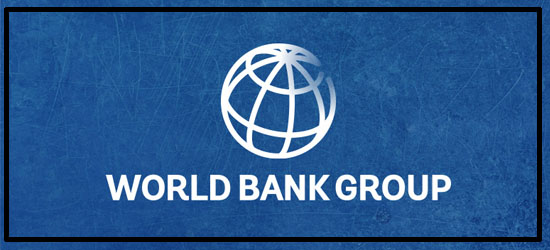
The World Bank Group is an international financial institution that provides financial and technical assistance to developing countries for development projects and programs. Its mission is to reduce poverty and promote shared prosperity by supporting sustainable economic growth, investing in human capital, and fostering resilience to global challenges. The World Bank Group consists of five institutions: the International Bank for Reconstruction and Development (IBRD), the International Development Association (IDA), the International Finance Corporation (IFC), the Multilateral Investment Guarantee Agency (MIGA), and the International Centre for Settlement of Investment Disputes (ICSID).
The International Bank for Reconstruction and Development (IBRD) is the main lending arm of the World Bank Group. It provides loans and credits to middle-income and creditworthy low-income countries for projects that focus on infrastructure development, agriculture, education, healthcare, and other sectors crucial for economic growth and poverty reduction. The IBRD works with governments to design and implement these projects and provides technical expertise and policy advice to support sustainable development.
The International Development Association (IDA) is the part of the World Bank Group that provides interest-free grants and concessional loans to the world’s poorest countries. The IDA aims to address the specific development challenges faced by these countries, such as extreme poverty, weak governance, and limited access to basic services. It supports initiatives in areas such as education, healthcare, water and sanitation, rural development, and infrastructure.
The International Finance Corporation (IFC) focuses on promoting private sector investment in developing countries. It provides financing, investment, and advisory services to businesses, helping to create markets, mobilize capital, and foster entrepreneurship. The IFC supports projects that have a positive social and environmental impact while generating economic returns.
The Multilateral Investment Guarantee Agency (MIGA) offers political risk insurance and credit enhancement to encourage foreign direct investment in developing countries. By providing guarantees against non-commercial risks, MIGA helps attract private sector investments that might otherwise be deemed too risky.
The International Centre for Settlement of Investment Disputes (ICSID) provides a forum for the settlement of investment disputes between investors and countries. It aims to promote stability and security for international investment by offering impartial and effective means for resolving disputes.
Together, the institutions of the World Bank Group work towards their shared goal of sustainable development, poverty reduction, and economic stability. They collaborate with governments, civil society, and other stakeholders to address global challenges and foster inclusive and sustainable growth in developing countries.
World Trade Organization (WTO)
The World Trade Organization (WTO) is an international organization that deals with the global rules of trade between nations. Established on January 1, 1995, the WTO serves as a platform for negotiating and implementing trade agreements, resolving trade disputes, and promoting open and fair trade practices among its member countries.
The primary objective of the WTO is to facilitate the smooth flow of international trade by providing a transparent and predictable framework of rules and regulations. It promotes the principles of non-discrimination, free trade, and the reduction of trade barriers, including tariffs, quotas, and other restrictive measures. Through its agreements, the WTO seeks to create a level playing field for businesses, encourage economic growth, and raise living standards around the world.
The WTO operates on the basis of consensus among its member countries, which currently number 164. It serves as a forum for negotiation and discussion on a wide range of trade-related issues, including agriculture, services, intellectual property rights, investment, and trade facilitation. The organization provides a platform for countries to voice their concerns, exchange information, and work towards mutually beneficial outcomes.
In addition to its role in facilitating trade negotiations, the WTO plays a crucial role in ensuring the compliance of member countries with the agreed-upon rules. The organization monitors trade policies, conducts regular reviews of members’ trade practices, and addresses disputes that arise between countries. The WTO’s dispute settlement mechanism provides a legally binding process for resolving trade disputes, helping to maintain the stability and predictability of the global trading system.
Moreover, the WTO engages in technical assistance and capacity-building activities to support developing countries in fully participating in the global trading system. It provides training, knowledge sharing, and policy advice to help countries strengthen their institutions, improve their trade-related infrastructure, and integrate into the global economy.
While the WTO has played a significant role in promoting global trade, it has faced criticism and challenges. Some argue that it has not fully addressed the needs and concerns of developing countries, leading to imbalances in trade relations. Efforts are ongoing to address these concerns and ensure that the benefits of trade are more inclusive and sustainable.
In conclusion, the World Trade Organization serves as the global body for regulating and promoting international trade. Through its rules, negotiations, and dispute settlement mechanisms, the WTO strives to create a more open, predictable, and fair global trading system that benefits all its member countries.
International Court of Justice (ICJ)
The International Court of Justice (ICJ), commonly referred to as the World Court, is the principal judicial organ of the United Nations (UN). Established in 1945, the ICJ is located in The Hague, Netherlands, and serves as the primary forum for settling legal disputes between member states and providing advisory opinions on legal questions referred to it by authorized UN organs and agencies.
The main objective of the ICJ is to promote the peaceful resolution of international disputes and uphold the rule of law in the international community. The Court is composed of 15 judges elected by the UN General Assembly and the Security Council for nine-year terms. These judges are chosen based on their expertise and qualifications in international law, representing a diverse range of legal systems and cultures.
The ICJ functions as a court of law, adjudicating disputes submitted to it by consenting states. Member states can bring cases before the Court on various legal matters, including territorial disputes, treaty interpretations, human rights issues, and violations of international law. The judgments and advisory opinions rendered by the ICJ are binding and serve as authoritative interpretations of international law.
In addition to its role in settling disputes, the ICJ provides advisory opinions to UN organs and specialized agencies. When authorized, the Court offers non-binding legal advice on questions of international law. These advisory opinions contribute to the development and clarification of legal principles and serve as guidance for UN member states and the international community as a whole.
The ICJ has played a significant role in shaping international law and contributing to the peaceful settlement of disputes. Its decisions have addressed critical issues, including state sovereignty, self-determination, the use of force, and human rights. The Court’s impartiality, expertise, and commitment to upholding international law have earned it widespread recognition and respect.
While the ICJ plays a crucial role in promoting the rule of law and resolving international disputes, it is not without limitations. The Court’s effectiveness depends on the voluntary participation and compliance of member states, and it may face challenges in enforcing its judgments or obtaining the consent of states to bring cases before it.
In summary, the International Court of Justice serves as the principal judicial body for settling international disputes and providing legal guidance on matters referred to it by the UN. Through its judgments and advisory opinions, the Court contributes to the development and application of international law, fostering peace, and promoting the rule of law in the international arena.
North Atlantic Treaty Organization (NATO)
The North Atlantic Treaty Organization (NATO) is an intergovernmental military alliance formed in 1949 to ensure the collective defense and security of its member countries. NATO was established in the aftermath of World War II, with the primary aim of countering the threat posed by the Soviet Union during the Cold War. Over time, NATO has evolved to address new security challenges and maintain peace in the Euro-Atlantic region.
The cornerstone of NATO is the North Atlantic Treaty, which outlines the alliance’s fundamental principles and commitments. The treaty emphasizes collective defense, stating that an attack on one member will be considered an attack on all, and that members will respond with necessary measures, including the use of armed force if necessary. This principle of collective defense remains central to NATO’s mission and provides a deterrent against potential aggression.
NATO’s membership has grown significantly since its inception, currently comprising 30 member countries, mostly from Europe and North America. The alliance serves as a platform for political and military cooperation among its members, fostering dialogue, collaboration, and joint decision-making on defense and security issues.
NATO’s core activities include collective defense, crisis management, and cooperative security. Through its integrated military structure and joint exercises, NATO enhances its members’ defense capabilities and ensures their readiness to respond to potential threats. The alliance also engages in peacekeeping missions, conflict prevention, and post-conflict reconstruction efforts, promoting stability and security in regions of concern.
Moreover, NATO actively contributes to arms control, non-proliferation, and disarmament efforts. The alliance promotes dialogue and cooperation with partner countries and organizations around the world to address common security challenges and foster international peace and stability.
NATO has adapted to changing security dynamics by addressing new threats such as terrorism, cyber attacks, and hybrid warfare. It has expanded its focus to include capacity-building, training, and support for partner countries, enabling them to enhance their own defense capabilities and contribute to regional security.
While NATO remains a key pillar of collective defense and security, it faces challenges in an evolving global security landscape. These challenges include maintaining unity among member states, addressing emerging threats, and ensuring equitable burden-sharing among members.
In conclusion, the North Atlantic Treaty Organization plays a vital role in promoting peace, security, and stability in the Euro-Atlantic region. Through its commitment to collective defense, crisis management, and cooperative security, NATO continues to adapt and respond to evolving security challenges, ensuring the defense and well-being of its member countries.
European Union (EU)
The European Union (EU) is a political and economic union comprising 27 member states primarily located in Europe. Founded on November 1, 1993, the EU aims to promote peace, stability, and prosperity among its members by fostering economic integration, cooperation, and the harmonization of policies. It represents one of the most significant and ambitious supranational organizations in the world.
The EU operates on the principles of shared sovereignty and solidarity. It facilitates the free movement of goods, services, capital, and people within its internal market, creating a single economic space of over 446 million consumers. This integration has led to increased trade, economic growth, and job opportunities among member states.
The EU also plays a crucial role in shaping policies in various areas, including agriculture, fisheries, environment, energy, transport, and consumer protection. Through its institutions, such as the European Commission, European Parliament, and Council of the European Union, the EU makes decisions collectively, reflecting the interests and needs of its member states.
Furthermore, the EU is committed to promoting human rights, democracy, and the rule of law. It has developed common policies in areas such as justice, migration, and security to ensure the safety and well-being of its citizens. The EU also fosters cultural and educational exchanges to promote understanding and cooperation among its diverse member states.
The euro, the EU’s single currency, is used by 19 member states, forming the Eurozone. This monetary union enhances economic stability and facilitates trade and financial integration within the Eurozone.
The EU’s influence extends beyond its borders. It engages in diplomacy, development cooperation, and humanitarian aid, promoting peace, stability, and sustainable development worldwide. The EU is also an active participant in international organizations and forums, advocating for multilateralism, climate action, and the protection of human rights.
While the EU has achieved significant successes, it also faces challenges. These include managing the diverse interests and needs of its member states, addressing economic disparities among regions, and ensuring democratic accountability in decision-making processes.
In conclusion, the European Union is a unique and complex organization that strives for economic integration, political cooperation, and the well-being of its member states and citizens. Through its commitment to shared values, the EU continues to shape the future of Europe and influence global affairs, working towards a more prosperous, peaceful, and united Europe.
African Union (AU)
The African Union (AU) is a continental organization consisting of 55 member states in Africa. It was established on May 26, 2001, with the objective of promoting unity, integration, and cooperation among African nations. The AU builds on the foundations of its predecessor, the Organization of African Unity (OAU), which was founded in 1963 to champion decolonization and promote African unity.
The AU aims to accelerate Africa’s socioeconomic development, enhance political stability, and foster continental integration. It works towards achieving these goals through various means, including political dialogue, conflict resolution, economic cooperation, and social development initiatives. The AU’s vision is to create an integrated, prosperous, and peaceful Africa, driven by its citizens and playing a dynamic role in the global arena.
The AU’s key institutions include the Assembly of the African Union, which consists of heads of state and government, and serves as the highest decision-making body. The Executive Council, composed of foreign ministers, provides policy guidance and oversight. The AU Commission serves as the administrative and executive body, implementing AU decisions and coordinating activities.
The AU addresses a wide range of issues, including peace and security, governance, human rights, economic development, infrastructure, and regional integration. It deploys peacekeeping missions and supports conflict resolution efforts in various African countries, working towards the prevention and resolution of conflicts. The AU also champions good governance, democracy, and human rights, and monitors electoral processes across the continent.
In terms of economic integration, the AU has made significant progress through the establishment of the African Continental Free Trade Area (AfCFTA). This landmark agreement aims to create a single market for goods and services, promote intra-African trade, and boost economic growth and industrialization across the continent.
The AU engages with regional economic communities and other stakeholders to promote cooperation and harmonization of policies. It collaborates with international partners and organizations to address global challenges and advocate for Africa’s interests on the global stage.
Despite the achievements of the AU, it faces various challenges, including armed conflicts, poverty, inequality, and the need for sustainable development. However, the AU continues to work towards addressing these challenges and building a brighter future for Africa.
In conclusion, the African Union plays a critical role in advancing the interests and aspirations of African nations. Through its commitment to unity, integration, and cooperation, the AU seeks to enhance peace, stability, and development across the continent. With its diverse member states and broad agenda, the AU remains a key player in shaping Africa’s future and representing the collective voice of African nations on the international stage.
Organization of American States (OAS)
The Organization of American States (OAS) is an intergovernmental organization that promotes regional cooperation and solidarity among the 35 independent countries of the Americas. Founded on April 30, 1948, the OAS serves as a forum for political dialogue, cooperation, and the pursuit of common goals in the areas of democracy, human rights, security, development, and social justice.
The OAS aims to foster peace, democracy, and stability in the Americas through political dialogue and collaboration. It seeks to strengthen democracy by supporting free and fair elections, promoting the rule of law, and protecting human rights. The OAS has developed important mechanisms to monitor elections, facilitate peaceful transitions of power, and address issues related to democratic governance.
Another key objective of the OAS is to promote sustainable development and social inclusion in the region. It addresses economic and social challenges through initiatives that focus on poverty reduction, education, healthcare, gender equality, and environmental sustainability. The OAS also promotes regional integration and trade cooperation to enhance economic growth and prosperity.
The OAS plays a critical role in addressing security issues in the Americas. It supports efforts to combat transnational crime, drug trafficking, terrorism, and corruption. The organization facilitates cooperation among member states in law enforcement, intelligence sharing, and the implementation of regional security strategies.
Moreover, the OAS serves as a platform for dialogue and consensus-building on various regional issues. It provides a forum for member states to discuss and address political conflicts, negotiate agreements, and resolve disputes through peaceful means. The OAS also works to strengthen cooperation in areas such as human rights, indigenous rights, migration, and disaster response.
The OAS operates through its principal organs, including the General Assembly, the Permanent Council, and the Secretariat. The General Assembly, composed of member states’ representatives, meets annually to discuss and make decisions on key regional issues. The Permanent Council serves as the main decision-making body, while the Secretariat implements OAS programs and initiatives.
While the OAS plays a crucial role in promoting regional cooperation, it faces challenges such as political divisions, inequality, and regional disparities. Efforts are ongoing to enhance the effectiveness and relevance of the organization in addressing these challenges and meeting the evolving needs of the region.
In summary, the Organization of American States serves as a platform for political dialogue, cooperation, and collective action in the Americas. Through its efforts to promote democracy, human rights, security, and sustainable development, the OAS works towards fostering peace, prosperity, and solidarity among its member countries.
Organization for Economic Cooperation and Development (OECD)
The Organization for Economic Cooperation and Development (OECD) is an international organization that promotes economic growth, prosperity, and improved living standards among its 38 member countries. Established in 1961, the OECD serves as a platform for governments to share knowledge, coordinate policies, and address common challenges in the economic and social spheres.
The OECD’s primary objective is to support sustainable economic growth and enhance the well-being of people around the world. It achieves this through the analysis and exchange of economic data, research, and policy recommendations. The organization provides a forum for member countries to discuss and develop evidence-based policies that foster innovation, productivity, and inclusive growth.
The OECD’s work covers a wide range of areas, including macroeconomic policy, trade, education, employment, health, environment, taxation, and governance. It conducts in-depth studies and produces reports on various policy issues, offering insights and recommendations to member countries on how to tackle economic and social challenges effectively.
The OECD serves as a trusted source of economic data and analysis, enabling policymakers to make informed decisions. Its statistical databases provide comprehensive information on economic indicators, enabling comparisons and benchmarking across member countries. The OECD also conducts peer reviews and evaluations of member countries’ policies and practices, fostering transparency and accountability.
The organization actively engages with non-member countries, forging partnerships and providing policy advice to support their efforts in achieving sustainable development and reform. It works closely with international organizations, such as the United Nations and the World Bank, to promote global economic cooperation and address shared challenges.
Furthermore, the OECD plays a critical role in addressing global issues, including climate change, digital transformation, and income inequality. It seeks to ensure that economic growth is environmentally sustainable and socially inclusive, supporting policies that promote a green and inclusive transition.
The OECD’s work is guided by principles such as democracy, market economy, and respect for human rights. It promotes good governance, transparency, and the fight against corruption. The organization actively supports efforts to combat bribery, money laundering, and other illicit financial activities.
In conclusion, the Organization for Economic Cooperation and Development serves as an important platform for international cooperation and policy coordination in the economic and social spheres. Through its research, analysis, and policy recommendations, the OECD supports member countries in fostering sustainable economic growth, improving living standards, and addressing global challenges.
International Atomic Energy Agency (IAEA)
The International Atomic Energy Agency (IAEA) is an international organization dedicated to promoting the safe, secure, and peaceful use of nuclear energy. Established in 1957 as an autonomous agency within the United Nations system, the IAEA serves as a global forum for cooperation in nuclear science, technology, and applications.
The primary objective of the IAEA is to prevent the spread of nuclear weapons and facilitate the peaceful use of nuclear energy for the benefit of humanity. The agency works towards achieving this goal by promoting nuclear safety, security, and non-proliferation. It plays a crucial role in verifying that nuclear programs in member states are used solely for peaceful purposes and comply with international safeguards.
The IAEA assists member states in developing and implementing nuclear energy programs, providing technical expertise, training, and guidance on nuclear safety and security. It conducts inspections, monitors nuclear facilities, and safeguards nuclear materials to ensure they are not diverted for military purposes.
Additionally, the IAEA supports member states in the areas of radiation protection, nuclear medicine, agriculture, and environmental protection. It promotes the use of nuclear technology for healthcare, agriculture, and industrial applications, contributing to improved human health, food security, and sustainable development.
The agency also plays a vital role in responding to nuclear emergencies and providing assistance in the event of nuclear accidents or incidents. It coordinates international efforts to assess and mitigate the consequences of such events, ensuring the protection of people and the environment.
The IAEA operates through its General Conference, which consists of representatives from member states, and its Secretariat, headed by the Director-General. The General Conference sets the agency’s policies, approves its budget, and elects the Board of Governors. The Board of Governors oversees the implementation of the agency’s programs and safeguards activities.
Moreover, the IAEA collaborates with other international organizations, such as the United Nations and the World Health Organization, to address global challenges related to nuclear energy, radiation, and nuclear security.
While the IAEA has made significant contributions to the peaceful use of nuclear energy, it faces challenges such as the need to enhance nuclear safety, address emerging technologies, and strengthen safeguards in an evolving global security landscape. Efforts are ongoing to continuously improve the agency’s effectiveness and ensure the safe and secure utilization of nuclear energy worldwide.
In summary, the International Atomic Energy Agency serves as a crucial international body that promotes the peaceful and safe use of nuclear energy. Through its efforts in nuclear safety, security, non-proliferation, and technical cooperation, the IAEA supports member states in harnessing the benefits of nuclear technology while ensuring global peace and security.
International Labor Organization (ILO)
The International Labor Organization (ILO) is a specialized agency of the United Nations dedicated to promoting decent work and social justice globally. Established in 1919, the ILO is the oldest international organization and serves as a tripartite body, bringing together governments, employers, and workers from its 187 member states.
The primary mission of the ILO is to advance social and economic justice by promoting rights at work, improving employment opportunities, enhancing social protection, and fostering dialogue among its constituents. The organization sets international labor standards through conventions and recommendations, addressing a wide range of labor-related issues, including freedom of association, collective bargaining, forced labor, child labor, and equal opportunities and treatment in employment.
The ILO plays a critical role in promoting decent work, which encompasses productive and freely chosen employment, social protection, rights at work, and social dialogue. It supports member states in developing policies and programs that create employment opportunities, ensure fair wages, protect workers’ rights, and provide a safe and healthy working environment.
The ILO engages in research, analysis, and advocacy to address emerging labor challenges and trends, such as technological advancements, globalization, and the informal economy. It provides technical assistance and capacity-building support to member states, assisting them in implementing labor standards and improving labor market conditions.
Furthermore, the ILO actively promotes social dialogue and tripartite cooperation as a means to address labor issues effectively. It facilitates discussions among governments, employers, and workers, fostering cooperation, resolving disputes, and formulating policies that reflect the interests of all stakeholders. The ILO also encourages employers’ and workers’ organizations to participate in its decision-making processes and activities.
The organization collaborates with other international organizations, such as the United Nations and the World Health Organization, to address social and labor issues within the broader context of sustainable development. It promotes the integration of social objectives into economic policies and advocates for social justice and decent work as essential components of sustainable development.
While the ILO has achieved significant milestones in advancing labor rights and social justice, it continues to face challenges such as inequality, informality, labor exploitation, and the impact of technological changes on the world of work. The ILO strives to adapt to these challenges and remains committed to its mandate of promoting social justice and decent work for all.
In conclusion, the International Labor Organization plays a pivotal role in advancing social justice and decent work worldwide. Through its standard-setting, research, technical assistance, and advocacy efforts, the ILO supports member states in promoting labor rights, improving working conditions, and fostering social dialogue. As the global nature of labor challenges evolves, the ILO remains dedicated to ensuring that all individuals can enjoy productive and fulfilling work in conditions of freedom, equity, and dignity.
United Nations Educational, Scientific and Cultural Organization (UNESCO)
The United Nations Educational, Scientific and Cultural Organization (UNESCO) is a specialized agency of the United Nations that promotes international collaboration in the fields of education, science, culture, and communication. Founded on November 16, 1945, UNESCO seeks to build peace, eradicate poverty, foster sustainable development, and promote intercultural dialogue through its diverse range of programs and initiatives.
Education is a key focus of UNESCO. The organization advocates for inclusive and quality education for all, emphasizing the importance of lifelong learning and the acquisition of knowledge, skills, and values. UNESCO works to enhance educational systems, promote literacy, and support educational innovations, with a particular emphasis on disadvantaged communities and marginalized groups.
UNESCO also plays a vital role in the preservation and promotion of cultural heritage. It works to safeguard tangible and intangible cultural heritage, such as historical sites, traditions, languages, and artistic expressions. The organization assists member states in the preservation and restoration of cultural sites, the protection of cultural diversity, and the promotion of cultural industries.
In the field of science, UNESCO fosters international scientific cooperation and promotes the use of science for sustainable development. It supports research, encourages the sharing of scientific knowledge, and advocates for evidence-based policies to address global challenges such as climate change, biodiversity loss, and the digital divide.
Furthermore, UNESCO promotes freedom of expression, media development, and access to information. The organization promotes press freedom, advocates for the safety of journalists, and supports independent media. UNESCO also works to bridge the digital divide and promote access to information and communication technologies, recognizing their potential for empowering individuals and fostering inclusive societies.
UNESCO operates through its General Conference, which includes representatives from member states, and its Secretariat, headed by the Director-General. The organization collaborates with governments, civil society organizations, and other stakeholders to implement its programs and initiatives. It also coordinates with other United Nations agencies and partners to achieve common goals in the areas of education, culture, science, and communication.
While UNESCO has made significant contributions to the promotion of education, culture, and science, it faces challenges such as inadequate funding, conflicts, and the preservation of cultural heritage in times of crisis. However, the organization remains committed to its mandate of building peace through the power of education, culture, and science.
In conclusion, the United Nations Educational, Scientific and Cultural Organization plays a crucial role in promoting education, science, culture, and communication worldwide. Through its diverse range of programs and initiatives, UNESCO strives to create a more inclusive, peaceful, and sustainable world, where all individuals have access to quality education, cultural heritage is preserved and celebrated, and scientific advancements contribute to the well-being of humanity.
World Intellectual Property Organization (WIPO)
The World Intellectual Property Organization (WIPO) is a specialized agency of the United Nations that promotes and protects intellectual property (IP) rights worldwide. Established in 1967, WIPO serves as a global forum for policy development, cooperation, and the harmonization of IP laws and regulations.
WIPO’s main objective is to encourage innovation, creativity, and the dissemination of knowledge by providing a robust and balanced framework for the protection of IP rights. The organization works to ensure that creators, inventors, and innovators have the necessary legal protection and support to benefit from their intellectual contributions.
WIPO administers several international treaties and agreements that govern various aspects of IP, including patents, trademarks, copyrights, industrial designs, and geographical indications. These treaties establish minimum standards for IP protection and facilitate the international registration and enforcement of IP rights.
WIPO supports member states in developing and implementing effective IP policies and strategies. It provides technical assistance, capacity building, and advisory services to help countries create IP frameworks that promote innovation, economic growth, and cultural development. The organization also facilitates the sharing of best practices and the exchange of information on IP-related matters.
Additionally, WIPO serves as a platform for global cooperation and dialogue on IP issues. It brings together governments, industry representatives, civil society organizations, and other stakeholders to discuss and address emerging challenges and opportunities in the IP field. WIPO’s activities foster collaboration, facilitate the resolution of disputes, and promote a balanced approach to IP protection and enforcement.
The organization also promotes the use of IP as a tool for economic development and social progress. It recognizes the importance of IP in areas such as technology transfer, public health, agriculture, and traditional knowledge. WIPO works to strike a balance between the protection of IP rights and the promotion of access to knowledge and cultural expressions.
WIPO operates through its General Assembly, which consists of member states, and its Secretariat, headed by the Director-General. The organization collaborates with other international organizations, such as the World Trade Organization (WTO) and the World Health Organization (WHO), to ensure coherence and coordination in IP-related matters.
While WIPO has made significant contributions to the global IP system, challenges persist, including the rapid pace of technological advancements, the digitalization of creative works, and the need to address IP issues in a globalized and interconnected world. WIPO continues to adapt its work to meet these challenges and to support the balanced development of IP systems worldwide.
In summary, the World Intellectual Property Organization plays a crucial role in promoting and protecting intellectual property rights globally. Through its activities in policy development, cooperation, and capacity building, WIPO supports innovation, creativity, and the dissemination of knowledge, contributing to economic growth, cultural development, and social progress.
International Red Cross and Red Crescent Movement
The International Red Cross and Red Crescent Movement is a global humanitarian network dedicated to providing assistance and protection to those affected by armed conflicts, natural disasters, and other emergencies. Composed of the International Committee of the Red Cross (ICRC), the International Federation of Red Cross and Red Crescent Societies (IFRC), and 192 National Red Cross and Red Crescent Societies, the movement operates on the principles of humanity, impartiality, neutrality, independence, voluntary service, unity, and universality.
The movement traces its roots back to 1859 when Henry Dunant, a Swiss businessman, witnessed the suffering of wounded soldiers during the Battle of Solferino in Italy. This led to the establishment of the ICRC in 1863, which was tasked with providing aid to wounded soldiers on the battlefield and promoting the development of international humanitarian law.
The ICRC focuses on providing humanitarian assistance during armed conflicts. It works to protect and assist those affected by conflicts, including prisoners of war, civilians, and detainees. The organization engages in activities such as providing medical care, facilitating the exchange of family messages, promoting the respect of international humanitarian law, and advocating for the rights of vulnerable individuals.
The IFRC, on the other hand, coordinates and supports the efforts of National Red Cross and Red Crescent Societies in responding to disasters and emergencies. It works to strengthen the capacity of these societies to provide effective humanitarian assistance and support local communities in building resilience. The IFRC also engages in initiatives related to health, disaster risk reduction, community development, and social inclusion.
The National Red Cross and Red Crescent Societies are present in almost every country, providing a wide range of services tailored to the specific needs of their communities. These societies play a critical role in disaster response, emergency preparedness, health services, blood donation, and community-based programs.
The International Red Cross and Red Crescent Movement operates based on the fundamental principles of humanity, impartiality, neutrality, independence, voluntary service, unity, and universality. It works in close cooperation with governments, international organizations, and other humanitarian actors to ensure effective and coordinated responses to emergencies.
The movement’s emblem, the red cross on a white background or the red crescent, serves as a recognized symbol of protection and assistance. It signifies the impartial and neutral nature of the movement and is respected and recognized worldwide.
In conclusion, the International Red Cross and Red Crescent Movement is a vital humanitarian network dedicated to alleviating human suffering and protecting the lives and dignity of those affected by armed conflicts, natural disasters, and emergencies. Through the efforts of the ICRC, the IFRC, and National Red Cross and Red Crescent Societies, the movement provides essential humanitarian assistance, promotes respect for international humanitarian law, and supports communities in building resilience.
Greenpeace
Greenpeace is a global environmental organization that operates as a non-governmental organization (NGO) and focuses on promoting environmental conservation, peace, and non-violence. Established in 1971, Greenpeace has grown into one of the most recognized and influential environmental organizations worldwide, advocating for solutions to pressing environmental issues through direct action, lobbying, research, and campaigns.
The organization’s mission is to protect the planet and promote sustainable development by addressing critical environmental problems, including climate change, deforestation, overfishing, biodiversity loss, and pollution. Greenpeace seeks to raise awareness, mobilize public support, and exert pressure on governments and corporations to adopt environmentally responsible practices and policies.
Greenpeace is known for its non-violent and direct action campaigns, which often involve peaceful protests, ship voyages, and creative actions to draw attention to environmental issues and confront destructive practices. Through these actions, Greenpeace aims to challenge and change practices that harm the environment, ensuring a sustainable future for all.
The organization conducts scientific research to generate evidence-based knowledge and assessments of environmental challenges. This research is used to inform public debates, drive policy changes, and advocate for sustainable solutions. Greenpeace also collaborates with scientists, academics, and experts to deepen understanding of environmental issues and promote the adoption of science-based policies.
Greenpeace’s campaigns focus on a wide range of issues, such as promoting renewable energy, protecting forests and oceans, advocating for the transition to sustainable agriculture, and addressing the impacts of hazardous chemicals. The organization operates on a global scale, with offices and volunteers in over 55 countries, working collaboratively to achieve its goals.
As an independent organization, Greenpeace relies on individual donations and grants to fund its activities, ensuring its freedom to advocate for environmental protection without commercial or political interference. This independence allows Greenpeace to engage in bold actions and hold governments and corporations accountable for their environmental impacts.
Greenpeace’s work has had a significant impact on shaping public discourse, influencing policies, and driving positive change in environmental practices. By mobilizing public support and raising awareness about pressing environmental challenges, Greenpeace continues to play a crucial role in driving the global movement towards a more sustainable and environmentally conscious future.
In conclusion, Greenpeace is a renowned global environmental organization that employs direct action, research, and advocacy to address pressing environmental issues. With a focus on non-violence, the organization strives to protect the environment, promote sustainable practices, and foster a planet that can sustain future generations. Through its campaigns and actions, Greenpeace has become a powerful force in raising awareness, mobilizing public support, and pressuring governments and corporations to take urgent action for the preservation of our planet.
Amnesty International
Amnesty International is a renowned global human rights organization that works tirelessly to promote and protect human rights around the world. Founded in 1961, Amnesty International operates as a non-governmental organization (NGO) and has become one of the most influential voices in advocating for justice, freedom, and equality.
The organization’s mission is to expose and confront human rights abuses, support victims, and work towards a world where every person enjoys the full range of human rights. Amnesty International focuses on a wide range of human rights issues, including freedom of expression, women’s rights, LGBTQ+ rights, refugee and migrant rights, abolition of the death penalty, and ending torture and arbitrary detention.
Amnesty International conducts rigorous research and investigation to document human rights violations and abuses. Through this research, the organization gathers evidence, builds cases, and produces reports that expose human rights abuses and provide recommendations to governments, international organizations, and the public. By shining a light on violations, Amnesty International aims to hold perpetrators accountable and bring justice to victims.
The organization also campaigns for the release of prisoners of conscience, individuals who have been imprisoned solely for exercising their human rights, and advocates for the fair treatment and protection of human rights defenders. Amnesty International mobilizes its global network of activists and supporters to engage in peaceful protests, letter-writing campaigns, and public advocacy to raise awareness and push for change.
Amnesty International works closely with grassroots organizations, local activists, and communities affected by human rights abuses to amplify their voices and provide support. The organization provides training, resources, and expertise to empower individuals and communities to advocate for their own rights and participate in the protection and promotion of human rights.
As an independent organization, Amnesty International operates with impartiality and relies on public donations to fund its work. This financial independence enables the organization to maintain its objectivity and speak out fearlessly against human rights violations regardless of political affiliations or ideologies.
Amnesty International has made a significant impact on global human rights discourse, influencing policy changes, and advocating for the rights of vulnerable individuals and communities. Through its tireless efforts, the organization has helped secure the release of prisoners, shed light on hidden atrocities, and push for legal reforms to protect human rights.
In conclusion, Amnesty International is a prominent global human rights organization dedicated to promoting and protecting human rights for all. Through its research, advocacy, and campaigns, Amnesty International works to expose abuses, hold perpetrators accountable, and empower individuals and communities to defend their rights. With its commitment to justice and equality, Amnesty International continues to be a driving force in the global human rights movement.
Transparency International
Transparency International is a global non-governmental organization committed to combating corruption and promoting transparency, integrity, and accountability in both the public and private sectors. Founded in 1993, Transparency International has grown into a leading voice in the fight against corruption, working to create a world where corruption is no longer tolerated and transparency is the norm.
The organization’s mission is to raise awareness about the damaging effects of corruption, advocate for effective anti-corruption measures, and empower citizens and institutions to resist and combat corrupt practices. Transparency International believes that corruption undermines democracy, erodes trust in institutions, perpetuates poverty, and hampers sustainable development.
Transparency International engages in research and advocacy to expose and address corruption at all levels. The organization conducts studies, produces reports, and publishes the annual Corruption Perceptions Index, which ranks countries based on perceived levels of public sector corruption. Through these efforts, Transparency International shines a light on corruption, identifies its root causes, and promotes evidence-based anti-corruption policies.
The organization works with governments, businesses, civil society organizations, and individuals to develop and implement effective anti-corruption strategies. It advocates for transparency in public procurement, financial transactions, and political financing, and promotes the adoption and implementation of robust anti-corruption laws and regulations.
Transparency International also supports grassroots initiatives and citizen-led movements to fight corruption at the local level. The organization provides training, resources, and technical assistance to empower individuals and communities to hold their leaders accountable and demand transparent and accountable governance.
In addition, Transparency International engages in global advocacy campaigns to promote transparency and combat corruption in specific sectors such as natural resource extraction, healthcare, education, and the judiciary. These campaigns aim to prevent corruption, enhance transparency, and ensure equitable and sustainable use of resources.
Transparency International operates through its global network of national chapters and partner organizations in over 100 countries. This network enables the organization to have a local presence and effectively address corruption challenges within specific contexts, while also fostering cross-border cooperation and knowledge sharing.
The organization’s work is guided by a set of core values, including integrity, independence, accountability, and non-partisanship. Transparency International maintains its credibility and effectiveness through its commitment to these values, ensuring that its efforts to combat corruption are impartial and driven by the best interests of society.
In summary, Transparency International is a prominent global organization dedicated to fighting corruption and promoting transparency, integrity, and accountability. Through research, advocacy, and grassroots initiatives, the organization strives to expose corruption, advocate for effective anti-corruption measures, and empower individuals and communities to demand transparent and accountable governance. By addressing corruption, Transparency International aims to create a more just, equitable, and sustainable world for all.

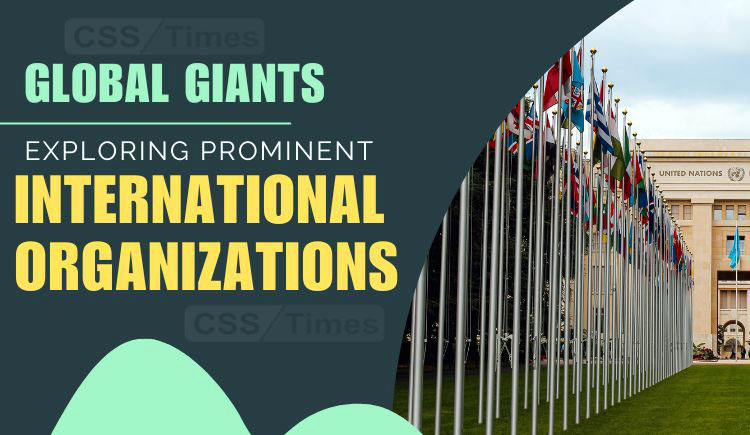



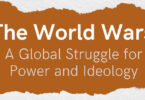

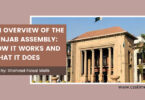
[…] Global Giants: Exploring Prominent International Organizations […]
[…] Read also: Global Giants: Exploring Prominent International Organizations […]